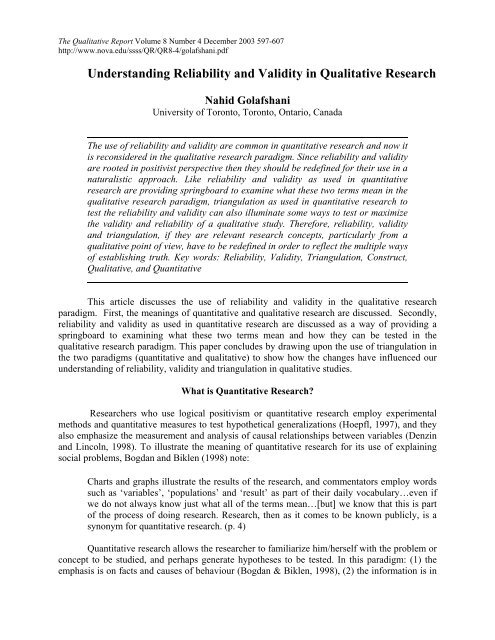

While reliability deals with consistency of the measure, validity deals with accuracy of the measure. Both these concepts imply how well a technique, method or test measures some aspect of the research. These are used to evaluate the research quality. In health care and social science research, many of the variables of interest and outcomes that are important are abstract concepts known as theoretical constructs. Reliability and validity are two important concepts in statistics. Data that were originally gathered for a different purpose are often used to answer a research question, which can affect the applicability to the study at hand.Ĭonclusion. Self-report of patients or subjects is required for many of the measurements conducted in health care, but self-reports of behavior are particularly subject to problems with social desirability biases.

Several issues may affect the accuracy of data collected, such as those related to self-report and secondary data sources. The responsiveness of the measure to change is of interest in many of the applications in health care where improvement in outcomes as a result of treatment is a primary goal of research. Validity is the extent to which the interpretations of the results of a test are warranted, which depends on the particular use the test is intended to serve. Reliability estimates evaluate the stability of measures, internal consistency of measurement instruments, and interrater reliability of instrument scores. The process of developing and validating an instrument is in large part focused on reducing error in the measurement process. If either of these qualities is lacking in the data, the nurse cannot make an informed. Key indicators of the quality of a measuring instrument are the reliability and validity of the measures. Validity the instrument measures what it is intended to measure. Issues related to the validity and reliability of measurement instruments used in research are reviewed.


 0 kommentar(er)
0 kommentar(er)
